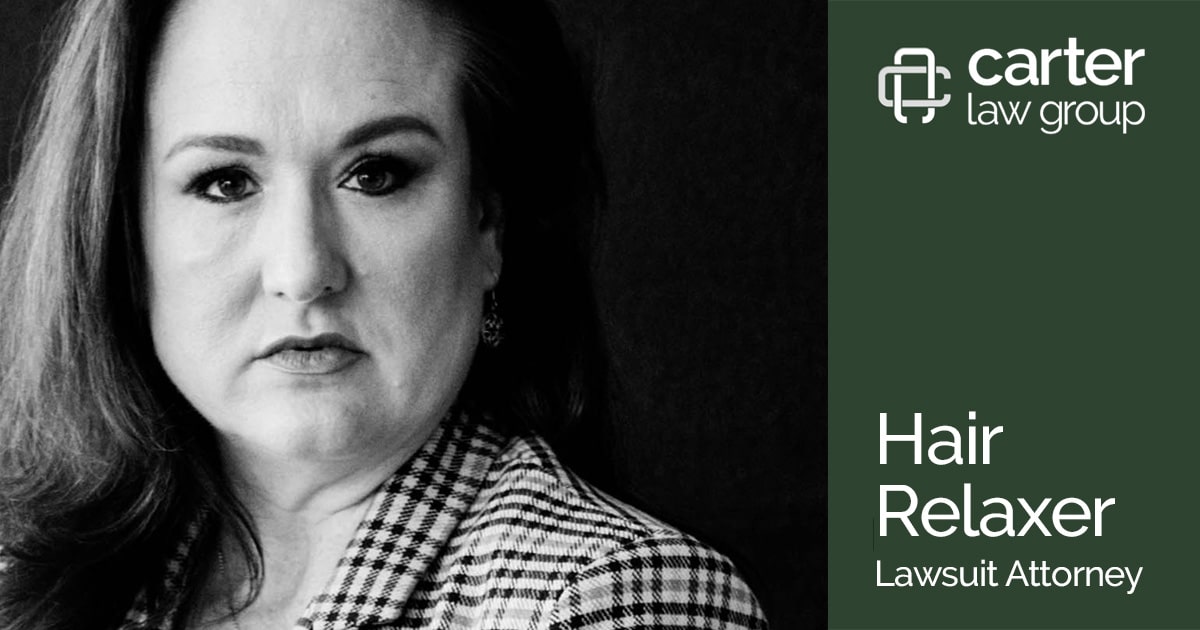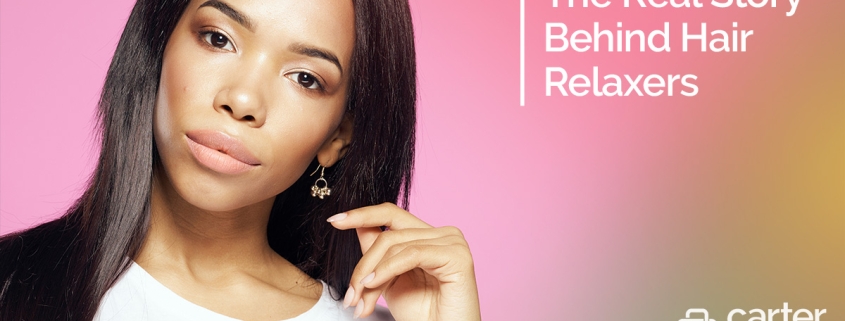Hair Relaxers: The Unpleasant Truth
Although many individuals grew up using hair relaxers, the chemicals in hair relaxers are actually causing more harm than you might think.
The Unpleasant Truth About Using Hair Relaxers
Women of color are becoming more aware of the risks associated with relaxers and are deciding to embrace their natural hair instead. Many people are still unaware of the terrible consequences relaxers may have on both your health and your hair, in addition to your hair.
The Real Story of Hair Relaxers for Black Women
Despite the fact that more women are accepting their natural hair, a sizable portion still uses relaxers on a daily basis.
It is a common fallacy that if a relaxant is burning, it is working. In actuality, however, if a relaxant is burning, it is likely causing more harm than you can ever fathom.
Through our skin, the dangerous chemicals in relaxers wreak havoc with our physical health.
Find out exactly why we should stop using relaxants.
Who Made Hair Relaxers?
Contrary to popular opinion, Garrett Morgan and not Madam CJ Walker invented relaxers. He was a former slave’s son. His initial goal in 1910 was to develop a fresh lubricant for sewing machine needles. He noticed that the hair on his arm started to lay straight after the lubricant unintentionally touched it.
Morgan created a topical hair product for black people to straighten their naturally curly hair by accident chemically. The “Relaxer” was the name of his creation.
What Material Do They Have?
Chemicals used in relaxers work against the natural chemical structure of curly hair. Lye, also known as sodium hydroxide, is the most dangerous component. Users are warned that “substances with high concentrations of lye can inflict chemical burns, lifelong harm or scarring, and blindness” by the soap manufacturer Certified Lye. If swallowed, lye (sodium hydroxide) can be dangerous or even lethal.
Although certain relaxers, like Dark and Lovely, African Pride, and Optimum Care, do not contain lye in their ingredient list, other chemicals are still utilized that are dangerous.
Guanidine carbonate is an additional component. Guanidine carbonate should only be handled under a chemical fume hood, according to Chemicalbook.com. Additionally, succinic acid, a component of relaxers, must to be kept away from skin, clothing, and eyes. The website of the renewable chemical firm Bio-amber warns that succinic acid “may be dangerous if absorbed through the skin.”
The fact that a relaxer comes into contact with the user’s scalp makes this warning shocking.

What Dangers Exist?
According to scientific studies, using the substances present in Black hair care products raises certain red flags. These substances can cause several difficulties and enter our bodies through the scalp.
According to studies, relaxants can lead to serious illnesses such as mental health concerns, early puberty, fibroids, heart disease, several types of cancer, and reproductive issues. It has been discovered that relaxants enter our systems through cuts and burns and alter the chemical equilibrium of our bodies.
Chemicals used in hair relaxers may increase the risk of uterine cancer.
According to an NIH study, Black women may be more impacted because of their higher consumption.
A new study from the National Institutes of Health found that women who used chemical hair straightening products had a greater chance of developing uterine cancer than women who did not disclose using these products. Other hair products, such as hair colors, bleach, highlights, or perms, that the women reported using were not linked to uterine cancer, according to the study.
33,497 American women between the ages of 35 and 74 who took part in the Sister Study, an investigation into the causes of breast cancer and other illnesses led by the National Institute of Environmental Health Sciences (NIEHS), a division of the National Institutes of Health (NIH), are included in the study data. During the nearly 11-year period when the women were monitored, 378 new incidences of uterine cancer were identified.
In comparison to women who did not use hair relaxer products, frequent users—defined as those who used them more than four times in the previous year—were more than twice as likely to later develop uterine cancer.
The risk of developing uterine cancer by the age of 70 was estimated to be 1.64% in women who had never used hair relaxers, but it increased to 4.05% in those who used them frequently, according to lead author Alexandra White, Ph.D., who also serves as the director of the NIEHS Environment and Cancer Epidemiology group. “This rate of doubling is alarming. Uterine carcinoma is a type of cancer that is rather uncommon, so it’s crucial to put this information into perspective.
With 65,950 expected new cases in 2022, uterine cancer is the most prevalent cancer of the female reproductive system and accounts for nearly 3% of all new cancer cases. According to studies, uterine cancer incidence rates have been rising in the US, especially among Black women.
According to a study published in the Journal of the National Cancer Institute, self-identified Black women made up almost 60% of the participants who admitted to using straighteners in the previous year. Despite the fact that the study did not identify a difference in uterine cancer incidence according to race, the negative health impacts may be more severe for Black women due to a higher prevalence of usage.
These results may be even more pertinent for Black women, according to Che-Jung Chang, Ph.D., a research fellow in the NIEHS Epidemiology Branch and one of the study’s authors. “Black women use hair straightening or relaxer products more frequently and tend to start using them at younger ages than other races and ethnicities,” Chang said.
The results are in line with earlier research that suggested women’s use of hair relaxers may raise their chance of developing malignancies linked to hormones.
The brands or contents of the hair products the women used were not gathered by the researchers. The authors of the paper do, however, mention that a number of substances that have been linked to uterine cancer risk (including parabens, bisphenol A, metals, and formaldehyde) have been discovered in straighteners.
Due to increased scalp absorption from using hair products, particularly relaxers, which may be aggravated by burns and lesions from using them, chemical exposure from using hair products, especially straighteners, may be more worrying than from using other personal care items.
According to White, this is the first epidemiological study to look at the connection between using a straightener and uterine cancer. “More study is needed to confirm these results in diverse groups, to assess if hair products contribute to health disparities in uterine cancer, and to identify the precise chemicals that may be raising the risk of malignancies in women,” the authors write.
Permanent hair color and relaxers may raise the risk of breast and ovarian cancer, according to prior research by this team.
National Institute of Environmental Health Sciences (NIEHS) information As a division of the National Institutes of Health, NIEHS promotes study into how the environment affects human health. Visit https://www.niehs.nih.gov for more information about NIEHS or environmental health-related subjects, or join a news list.
The NIH (National Institutes of Health): The United States Department of Health and Human Services contains NIH, the country’s medical research organization, as one of its 27 Institutes and Centers. The National Institutes of Health (NIH) is the main federal organization performing and funding fundamental, clinical, and translational medical research. Its work focuses on finding the causes, prognoses, and therapies for both common and rare diseases. Visit www.nih.gov for more details about the NIH and its activities.

Get Help on Filing a Hair Relaxer Lawsuit Claim Today
If you have been diagnosed with cancer, uterine fibroids, breast cancer or other diseases and you used hair relaxers, contact Carter Law Group for a free case review or call (214) 390-4173.


